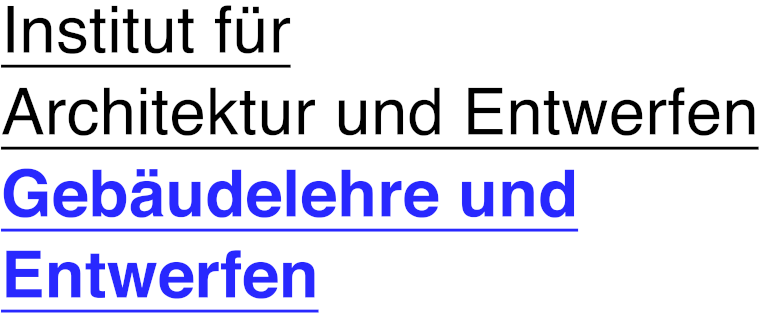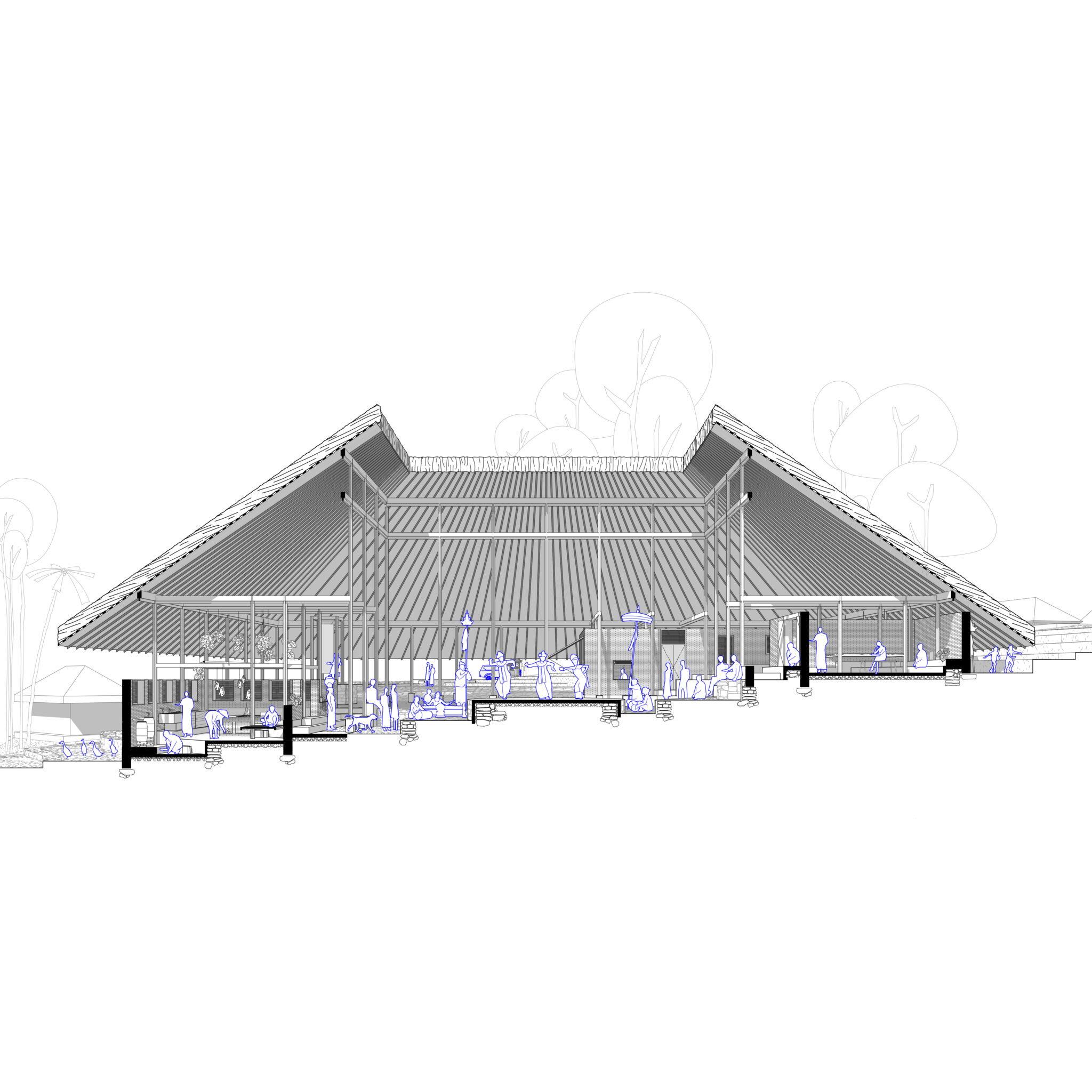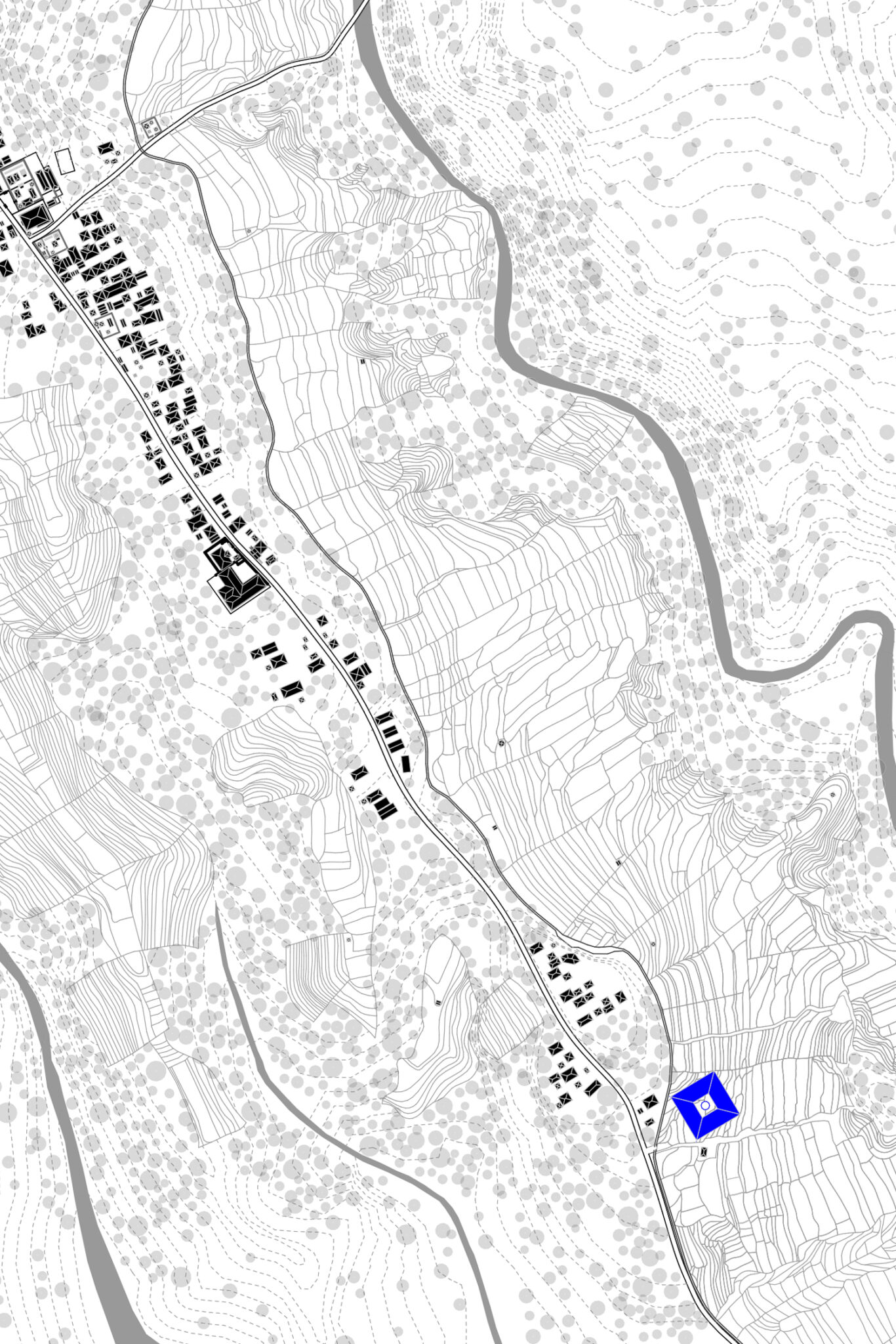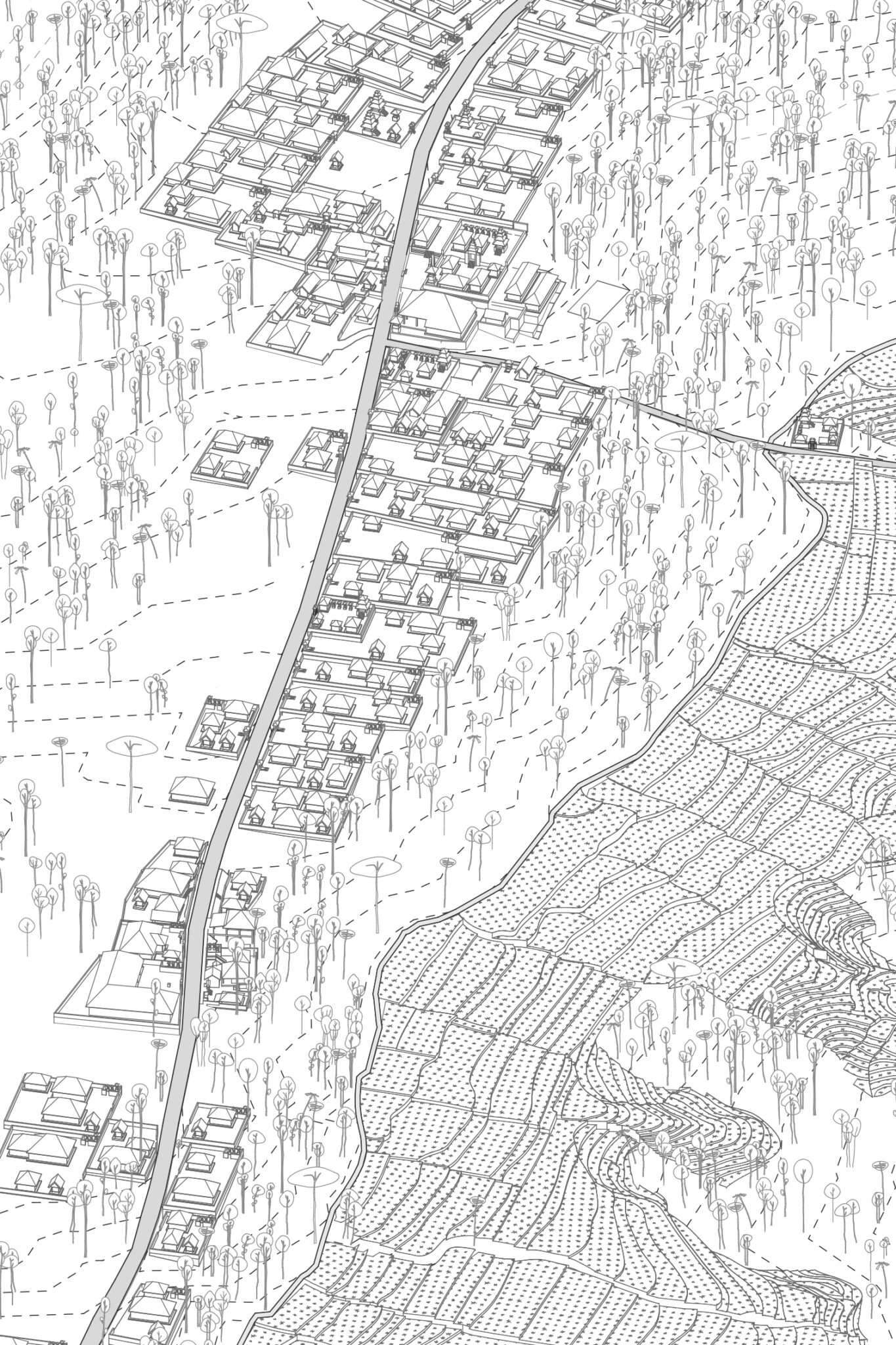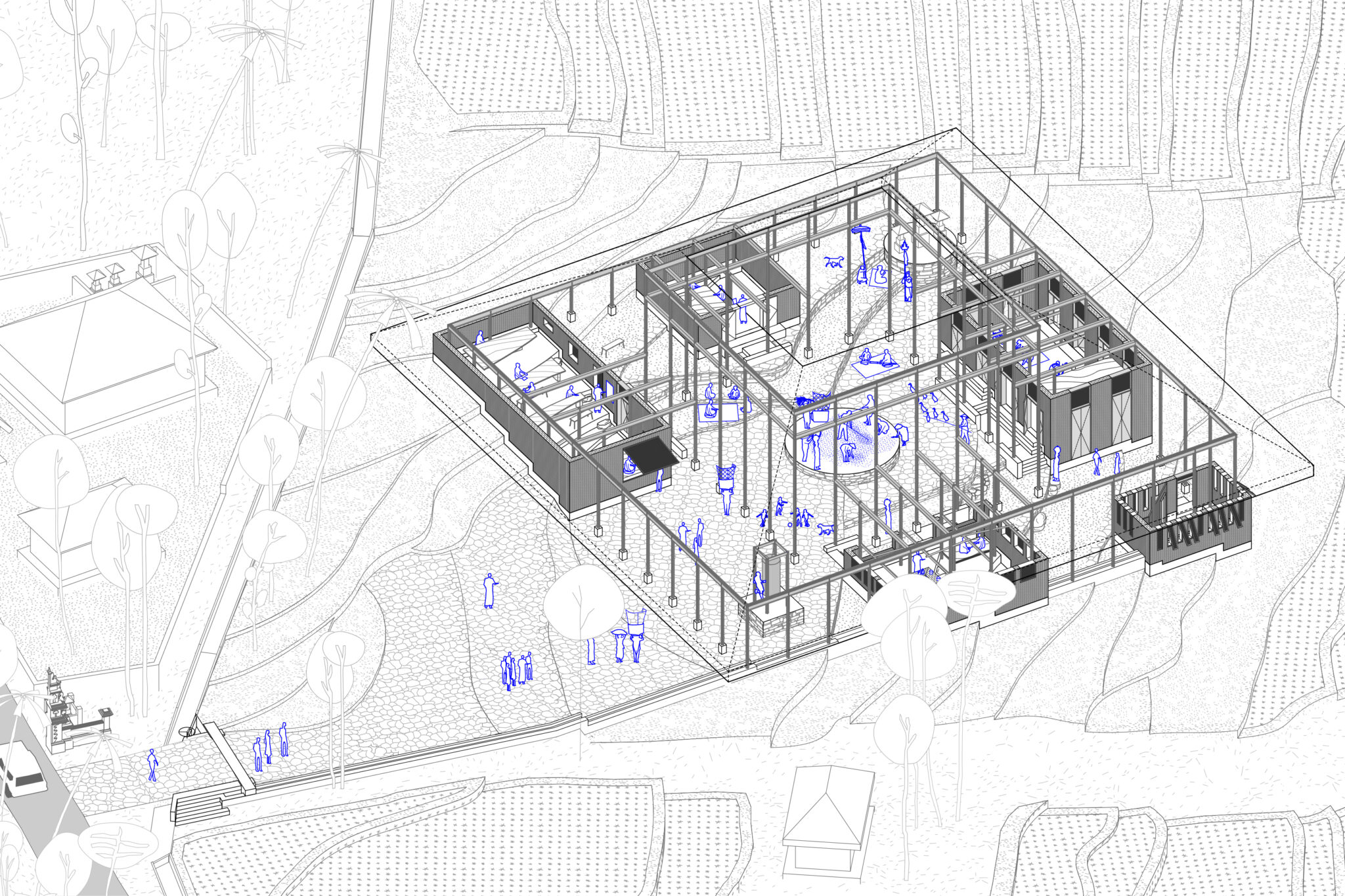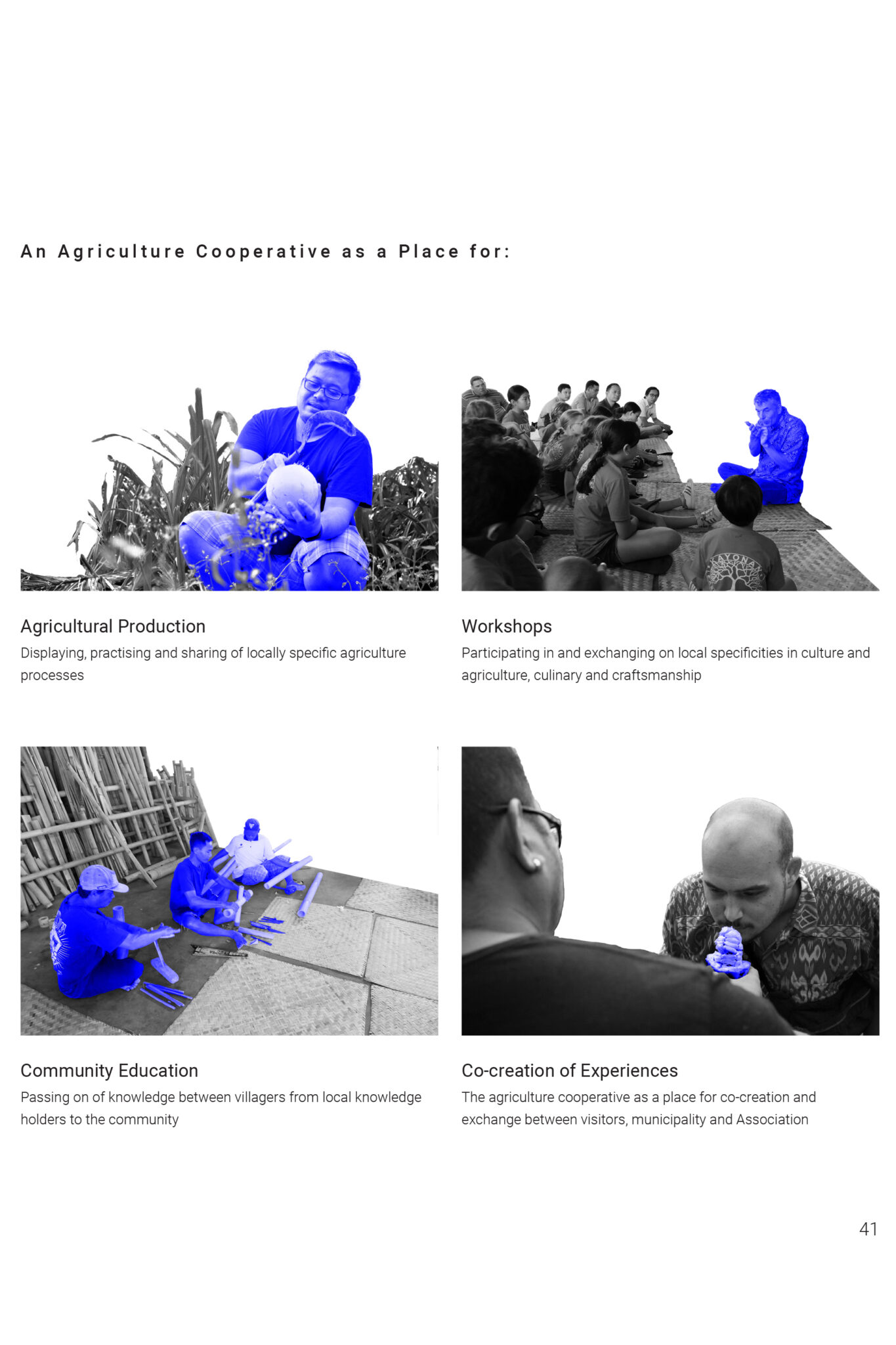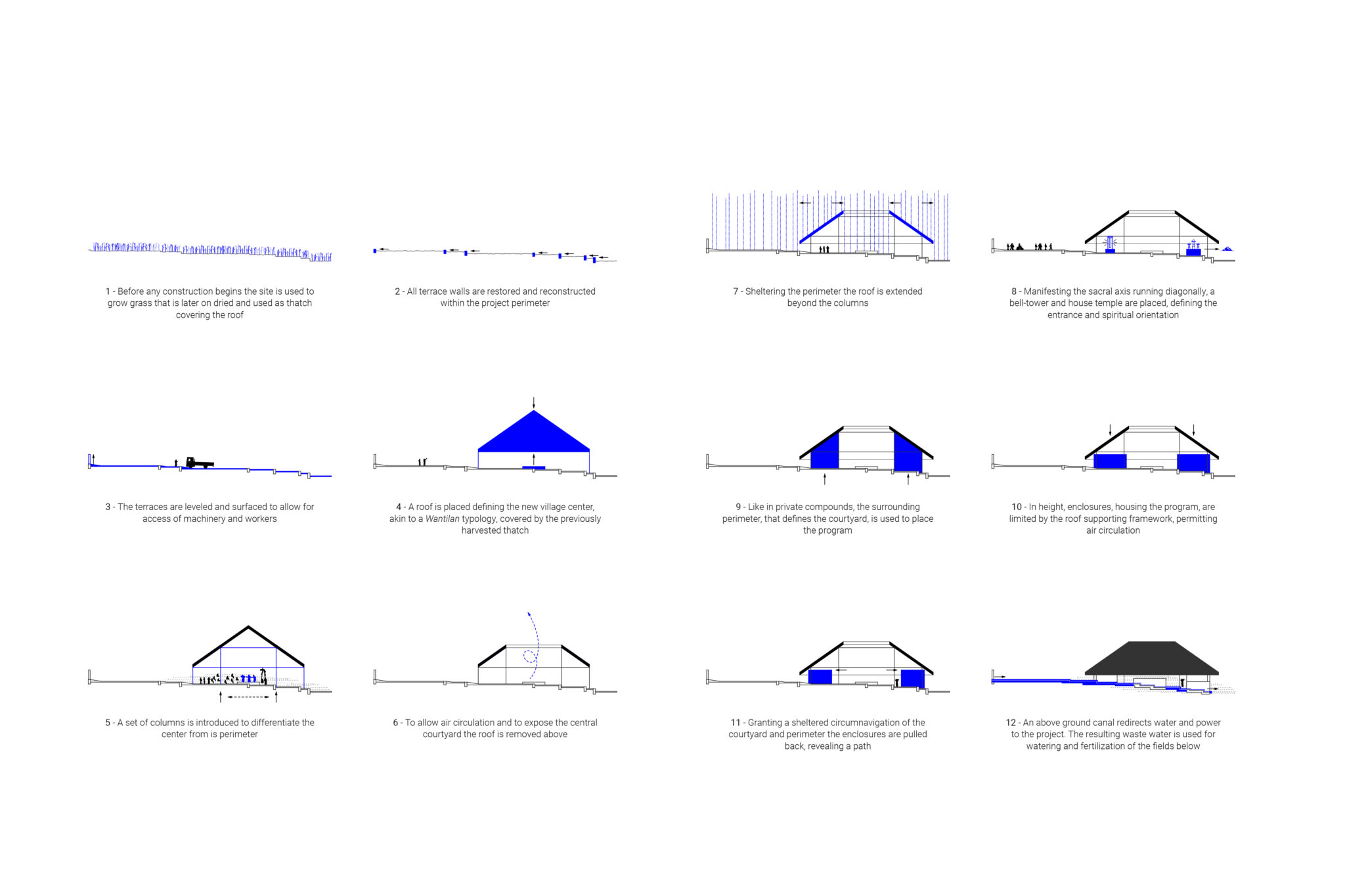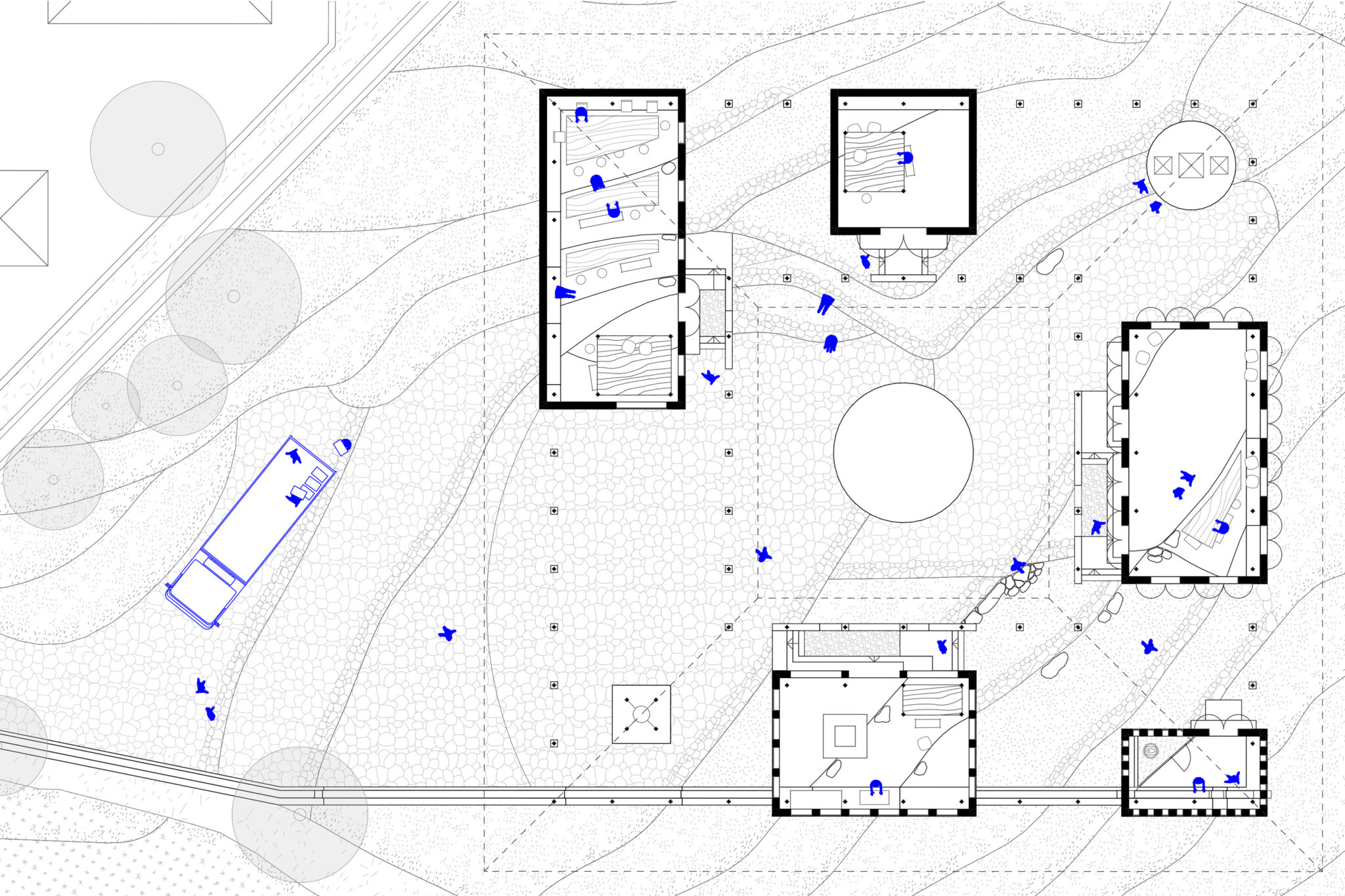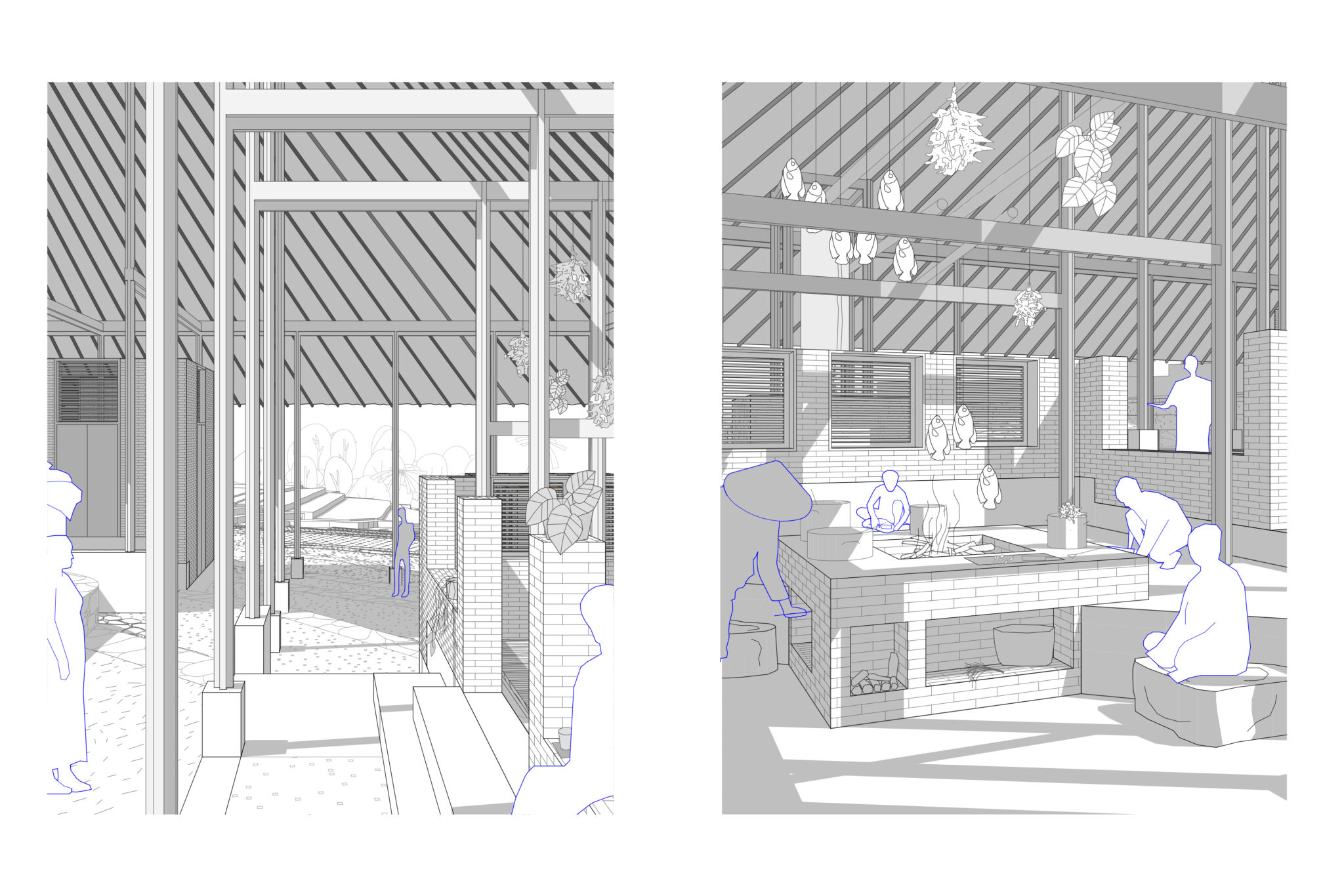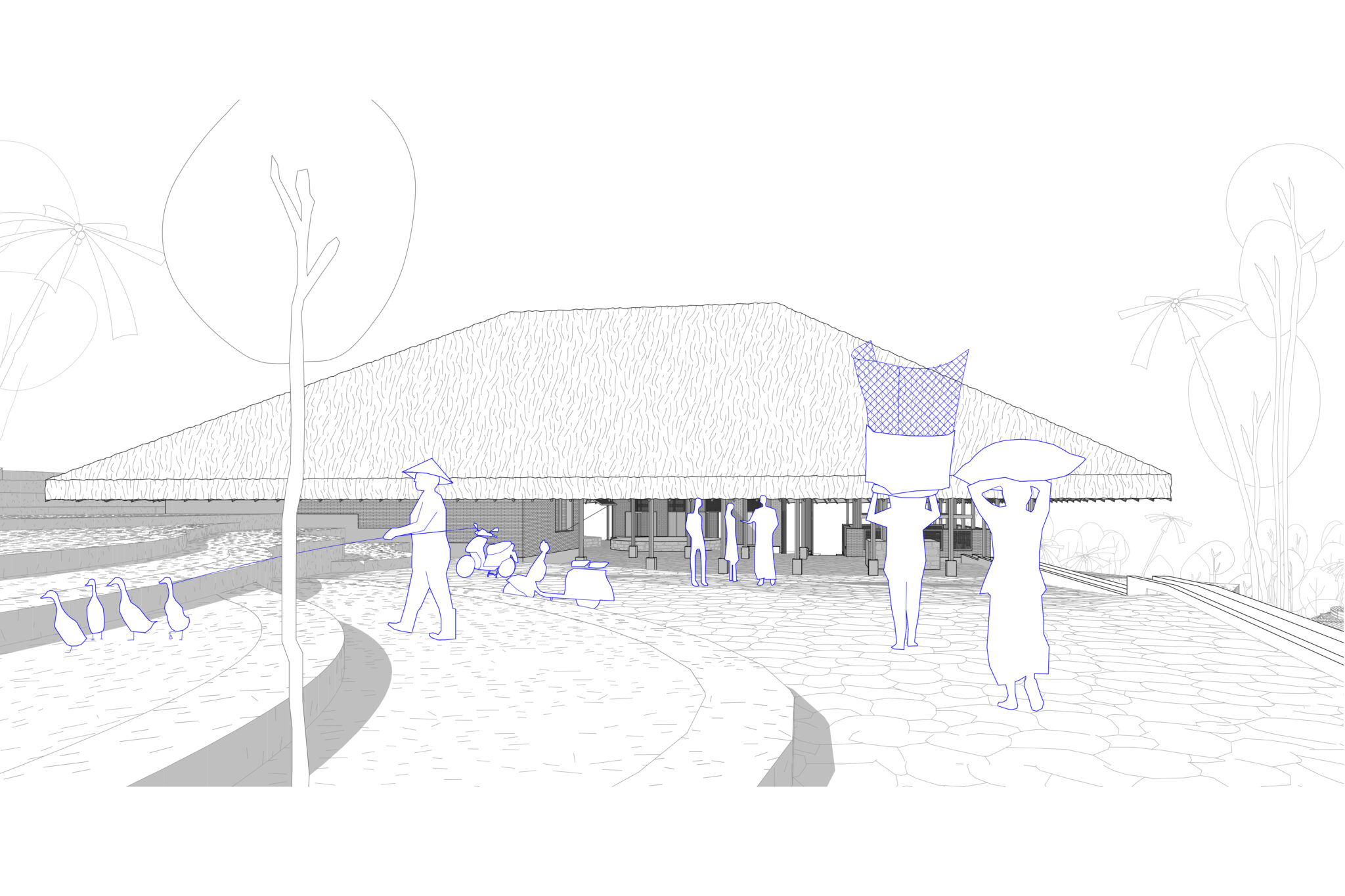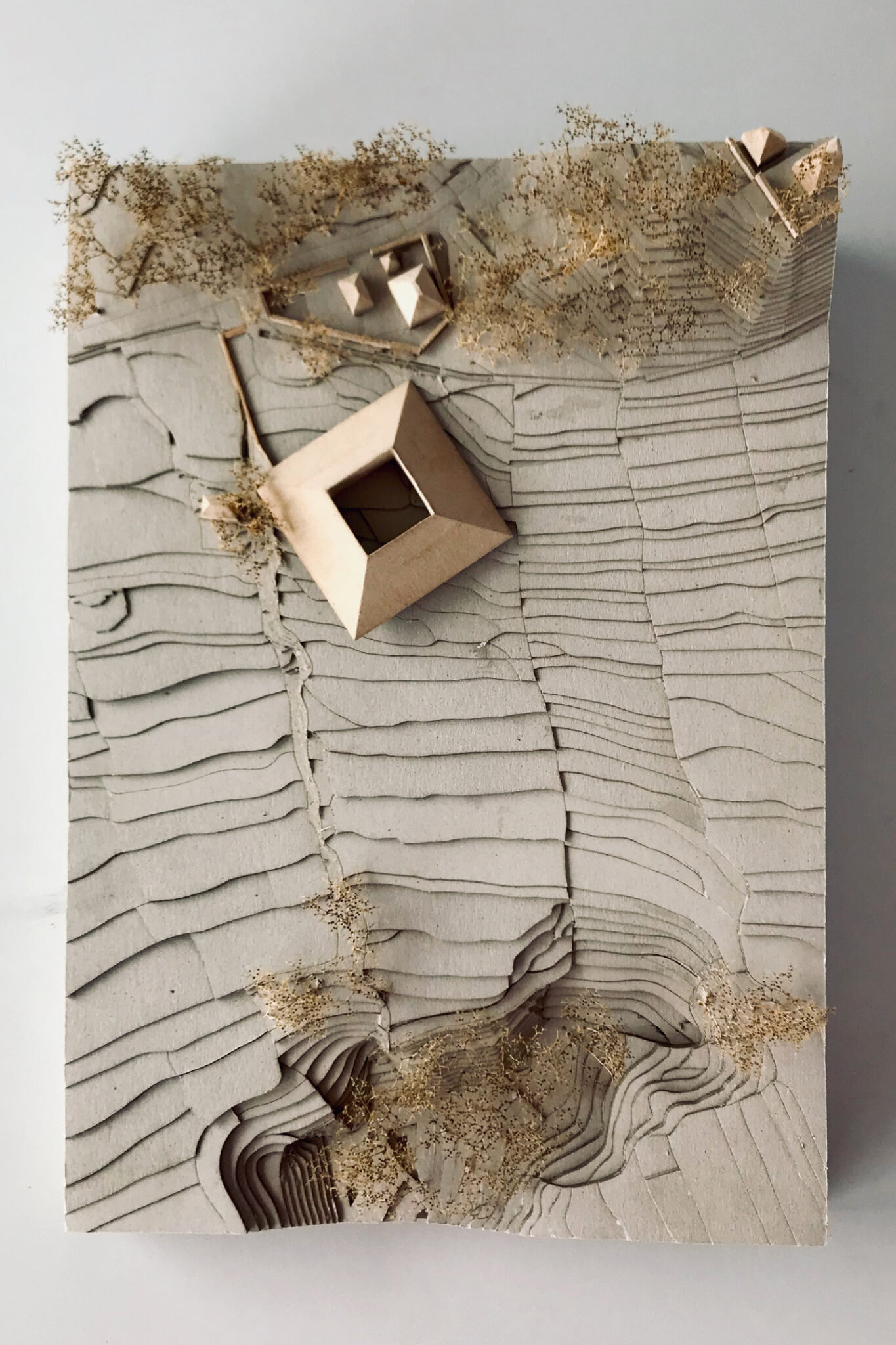It were the first travellers in the 1930s that described Bali as „an enchanted land of aesthetes at peace with themselves and nature.“ These first tourists to the „island of gods“ where anthropologists, musicologists and artists. Since then a lot changed. Bali’s economy has become entirely dependent on an ever increasing number of tourists each year. Development of hotels and resorts is booming. Labourers from all over Indonesia and Bali are flocking to the tourism hotspots along the beaches to work in the lucrative tourism sector. They become drivers, waiters, chefs. As a result the more remote countryside of Bali is dying. Deprived from its young generation, traditional customs start to fade. Villages are being abandoned, farmlands remain untilled and properties get sold to enthusiastic developers erecting yet another hotel, villa or resort.
Based on the ideas and principles of nanotourism this project aims to identify a hyper local alternative to the prevailing mass tourism in Bali. By analysing the resulting environmental, social and economic downsides of this conventional tourism it showcases the proposal of a collaboration for a participatory, locally oriented, sustainable alternative. It is analysing both the effects of mass tourism on the surrounding environment and the communities that are dependent on it, as well as traditional Bali-specific architectural typologies, in order to propose a bottom-up alternative.
By approaching the central Balinese village of Sangketan, a prime example for the rural exodus due to increased opportunities in mass tourism a collaboration was established. Through the formation of a village-run „Association for conscious tourism in Sangketan“ over 65 members of the community participated in finding new economic opportunities for themselves and their village. The result is the proposal of an Agriculture Cooperative jointly operated, funded and built by Sangketan’s municipality and its new „Association for conscious tourism“.
The result is an architectural proposal to stimulate the village, defined by its users, a model for the future, for the region for the island, based on local needs, a case study for solution-driven design, through integrative collaboration.





